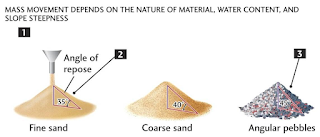Pharmacy Education in India
Introduction
The profession of Pharmacy in India has a long and rich history dating back centuries. Pharmacy education has played a crucial role in the growth and development of the profession in the country. Today, pharmacy education is considered to be one of the most promising career paths for students interested in the healthcare sector. In this article, we will discuss the history of pharmacy in India and its relationship with pharmacy education.
Pharmacy Education in Ancient India
Pharmacy education has its roots in ancient Indian systems of medicine such as Ayurveda, which relied heavily on the use of herbs and natural remedies to treat illnesses. The ancient texts of Ayurveda, including the Charaka Samhita and Sushruta Samhita, contain detailed descriptions of medicinal plants and their use in preparing remedies.
"Pharmacy education in India has a long history dating back to the ancient times of Ayurveda. The use of natural remedies for treating illnesses has been a part of our tradition for centuries." - Dr. Ashok K. Gupta, Professor of Pharmacy, Indian Institute of Technology, Delhi
Pharmacy Education in Colonial India
During the colonial era, pharmacy education in India was primarily focused on training pharmacists to work as assistants to British doctors. The first pharmacy school in India was established in 1822 in Kolkata, which offered a two-year course in pharmacy. The primary objective of the course was to produce pharmacists who could assist British doctors in their practice.
"The colonial era marked the beginning of modern pharmacy education in India. The pharmacy school in Kolkata laid the foundation for the growth of the profession in the country." - Dr. Pradeep K. Sharma, Professor of Pharmacy, Guru Jambheshwar University of Science and Technology
Pharmacy Education in Independent India
After India gained independence in 1947, pharmacy education underwent a significant shift, with the focus on developing a self-sufficient pharmaceutical industry. The first pharmacy college in independent India was established in 1948 in Banaras Hindu University. Since then, pharmacy education has undergone numerous changes, with the addition of new courses, technologies, and opportunities for students.
"The establishment of pharmacy colleges in independent India was a significant milestone in the growth of the profession. It provided opportunities for students to acquire knowledge and skills required for a successful career in pharmacy." - Dr. Rajeshwari K. Shetty, Professor of Pharmacy, Manipal Academy of Higher Education
Pharmacy Education Today
Today, pharmacy education in India offers a diverse range of courses, including diploma courses, undergraduate courses, postgraduate courses, and doctoral programs. The curriculum includes subjects such as pharmacology, pharmaceutical chemistry, pharmaceutics, and pharmacognosy. Students are also exposed to modern technologies such as computer-aided drug design and drug delivery systems.
"Pharmacy education in India has evolved tremendously over the years, providing students with access to world-class facilities and state-of-the-art technologies. The curriculum is designed to equip students with the knowledge and skills required to succeed in the profession." - Dr. Meenakshi Dahiya, Professor of Pharmacy, National Institute of Pharmaceutical Education and Research
Conclusion
In conclusion, pharmacy education has played a crucial role in the growth and development of the profession of Pharmacy in India. From the ancient times of Ayurveda to the modern era of technology, pharmacy education has undergone significant changes, providing students with the knowledge and skills required to succeed in their careers. Today, pharmacy education in India is considered to be one of the best in the world, with a diverse range of courses and opportunities for students.
References
Gupta AK. Pharmacy education in India. Indian J Pharm Educ Res. 2006;40(2):95-99.
Sharma PK. A brief history of pharmacy education in



Comments
Post a Comment